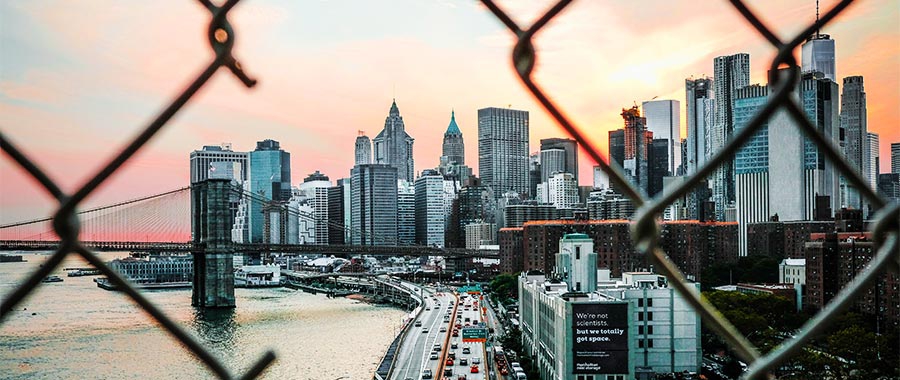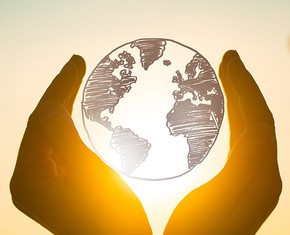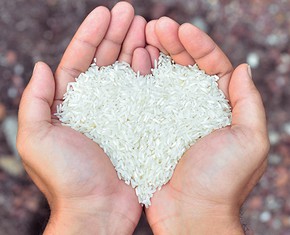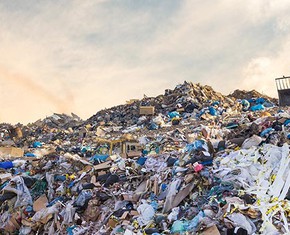The views expressed in our content reflect individual perspectives and do not represent the authoritative views of the Baha'i Faith.
I recently gave a talk at a conference on the theme of ‘What is the role of wealth in society?’ and I was inspired to share some of my reflections here.
The Baha’i Universal House of Justice points out that: “The welfare of any segment of humanity is inextricably bound up with the welfare of the whole.” We see this statement being truer than ever. With four billion Internet users around the world and flights going to every corner of the planet, it is surprising that we still have such a lack of understanding of each other.
Rather than bringing the world together, we often find that new barriers are being drawn, be they economic, societal or ideological barriers. Bad financial, economic or climate decisions in one country can have catastrophic consequences for the rest of the world. International terrorism and government autocracy are accentuating injustice in all forms.
The gap between rich and poor is also increasing. New estimates from Oxfam in 2019 show that just eight men own the same wealth as the poorest half of the world.
So where do we go from here? Baha’u’llah emphatically states:
Man’s merit lieth in service and virtue… and not in the pageantry of wealth and riches… Dissipate not the wealth of your precious lives in the pursuit of evil and corrupt affection, nor let your endeavors be spent in promoting your personal interest. – Tablets of Baha’u’llah, pp. 138.
One powerful manifestation of this is in the world of impact investing—investing in companies where the goal is not just to maximize financial returns but also social and environmental impact. This is what I have been drawn to.
This field has grown incredibly from being a marginal element of the broader financial system to a position where the top investing firms are competing with each other for talent and clients around their new social impact financial products. There are investment products across asset classes that are being developed to address increased interest in these types of investment vehicles—whether this be green bonds, social impact bonds or direct investment opportunities. Furthermore, with the inter-generational wealth transfer that is taking place, we are seeing increased interest from the next generation in more impact-oriented investment opportunities.
It is also clear that purely giving money away is not the answer, which is a challenging thought for the philanthropists and charities in our world. The Baha’i Universal House of Justice states:
Social change is not a project that one group of people carries out for the benefit of another. – Letter from the Universal House of Justice.
So—what is it that affects social change? For me, it means that we need to give people agency, meaning we need to help people help themselves. If, instead of being seen as recipients of aid and development, people were considered as active protagonists in their own future and development, the world would look quite different.
In our small way, through our organization Impact Experience, we seek to work with people in marginalized communities to take ownership of their own process of transformation. We invite investors to meet with community leaders and co-create opportunities in which the community becomes invested. A big part of the convenings we organize focuses on the spiritual nature of humanity and trust-building with our co-workers and funders. So far, we have worked in over 16 communities, unlocked over $40 million of investments, engaged over 500 people to build bridges across differences and initiated and built upon projects that serve the communities.
One of the biggest challenges we have found, which is quite interesting considering the good intentions of people seriously wanting to help others, is implicit bias. This is unconscious prejudice about people who may be considered “high-risk” by virtue of certain assumptions we make about them. For example, within investing, out of the $34 trillion that is invested annually, less than 2% goes to companies and funds run by women and people of color. If we want to think about the redistribution of wealth in society, we need to become aware of our implicit biases and recognize inherent power dynamics.
Another area we have become engaged in recently is what have been called, ’Opportunity zones’ within the US. Opportunity zones provide a new tax legislation that means that if you invest in certain low-income communities across the US, then you get a capital gains write-off. This is a great opportunity to unlock greater pools of capital into areas which would previously not draw investment. However the challenge is that if these investments are made without engaging community leaders, unintended consequences will arise, such as gentrification, which privileges the rich at the expense of the poor. We have therefore been working with communities in opportunity zones to engage them in playing a role in the construction of deals within their communities for the benefit of the needy.
When we think of “wealth”, we often only think of monetary wealth, but I think it is important to expand the concept of wealth from purely material acquisitions to also include cultural and spiritual wealth.
Let us consider Abdu’l-Baha’s statement:
The happiness and greatness, the rank and station, the pleasure and peace, of an individual has never consisted in his personal wealth, but rather in his excellent character, his high resolve, the breadth of his learning, and his ability to solve difficult problems. – The Secret of Divine Civilization, pp. 23.
So we can see that wealth can be defined in education, knowledge, the arts, character—these are all essential manifestations of wealth, and essential pre-requisites for creating a better world.
In all of our work at Impact Experience, we actively engage artists and have a partnership with an initiative called CultureBank focused on investing in artist entrepreneurs and the development of cultural assets in society. I am currently also exploring an exciting initiative focused on supporting more spiritually-inspired musicians.
So in conclusion, what can we do?
We can consider what wealth we have acquired, be it money, education, spiritual enlightenment, skills, influence, or any other strength, and determine how we can actively use this wealth to engage society in becoming self-sufficient. We can also continue to explore our biases and observe the influence that they have on our decision-making.
There is a current zeitgeist that people have lost faith in the established system of governance and business and are seeking alternatives. We have a choice: should we despair and focus on the negative forces of disintegration in the world, OR should we choose to engage from a place of positivity and know that we can only do our best?
I look forward to engaging further and hearing people’s thoughts and reactions on this topic.
















Comments
Sign in or create an account
Continue with Googleor